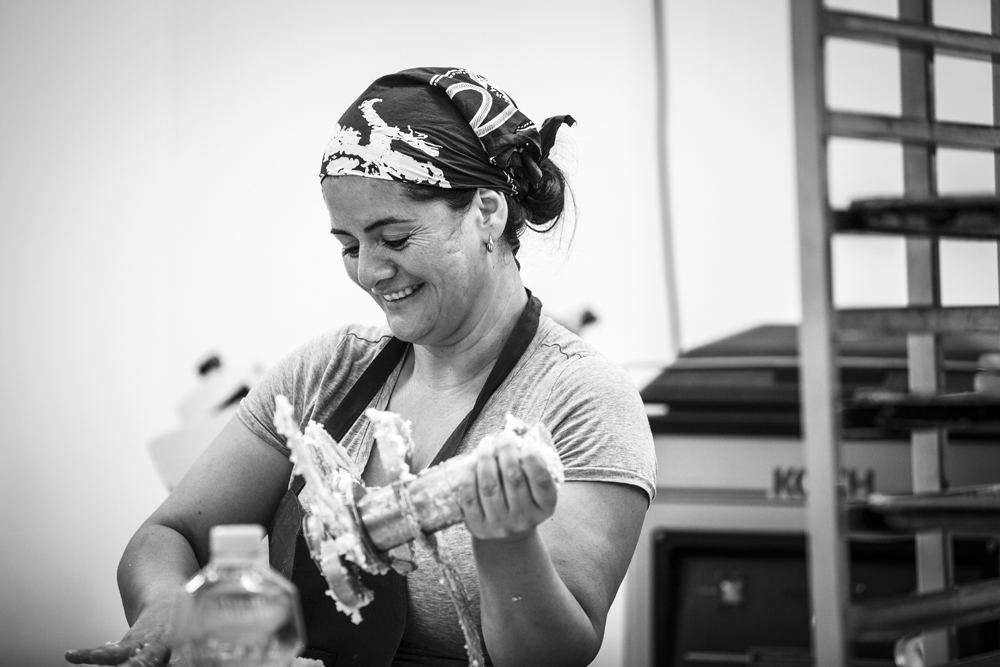
On the Brink with a Disabled Child
By KATIE BENTLEY of Covington, Kentucky, who testified before Congress about Supplemental Security Income, or SSI, benefits for low-income disabled children. She is on the board of The Arc of the United States, an organization advocating for the intellectually and developmentally disabled.
Will is my 10-year-old son, and he is my hero. He fuels my passion to make the future better for disabled kids and their families. He has taught me everything I know about courage and commitment.
Will seemed fine as a baby, but as he grew, it became clear that something was very wrong. He was unable to talk, take a drink, or feed himself, and the doctors thought that he had autism. Then, when he was 3, he collapsed with a massive seizure. I held him for terrifying minutes as his body banged against me, afraid he would never breathe again.
An MRI revealed brain lesions, the cause of what became frequent, violent electrical storms in his head. The diagnosis: A severe seizure disorder causing memory loss, sensory integration disorder, and developmental and intellectual disability in just about every area of his life.
He went downhill. The more seizures he had, the more he fell behind—struggling every day with feeding himself, walking, and communicating. During the day, he would learn how to do or say something; at night, seizures wiped out the information. He had to learn over and over again, and he did.
My husband William and I both had jobs and medical insurance. He is a diesel mechanic, and I operated a state-certified child care facility. But I was missing too much work because of ferrying Will to therapists and doctor appointments, emergency room visits, and long nights filled with seizures. I closed my business and took a much lower-paying job with flexible hours so I could care for him.
Eventually, Will’s anxiety and need for constant care became so great that he was unable to cope. The nurses at his daycare said he would lie listless and cry all day long. He would get sick and not eat for days, causing more seizures. Finally, I quit my job to care for my son full time.
William and I had always promised ourselves we would do all of this on our own. But we had to pay $1,000 a month not covered by insurance for Will’s anti-seizure medications, and we found we could barely afford the fuel to drive him to frequent appointments for speech, physical, and occupational therapy, not to mention constant visits to physicians on his medical team, including a developmental pediatrician, immunologist, psychologist, allergist, and others—and the co-pays for all those sessions. We were on the brink and needed help.
We turned to Social Security Insurance for low-income children with disabilities. We held our breath, as Social Security turns down almost 60 percent of all applications for this benefit.1 Months later, Will was awarded SSI. That meant he also qualified for Medicaid coverage to supplement our own policy, alleviating the burden of so many huge co-pays for professionals and medication. And we were now able to purchase the specialized education supplies, therapy equipment, and feeding items we couldn’t afford before. Every three years, SSI requalifies him for the benefit by examining his medical records and our income level.
Today, Will is much improved. He has breakthrough seizures, but for the first time, they are mostly under control. He is reading at a third-grade level. Slowly but surely, he is learning how to swim. He has become a great activist for kids with disabilities, and he got a Kentucky State Advocacy Award for helping pass a law protecting children from “restraint and seclusion”2 in public school—a practice of which Will was a victim. We believe his preschool teacher punished him because he couldn’t learn like the other kids, and we found out only after he learned how to talk and told us.
In 2011, Will and I attended a hearing held by the House Ways and Means Subcommittee on Human Resources. I listened as “experts” shared their belief that families of children with severe disabilities are getting rich from SSI government aid. Rich? I told them of our struggles to get and keep what Will needed. I told them that Will wouldn’t be where he is today if we hadn’t had access to these resources. I talked about my expectations that he will contribute to his community and not be the burden the experts believe these children become as adults. As a matter of fact, I now work part time helping other children with disabilities learn how to do just that: not be afraid to go out and be an active part of their world.
Right before that trip, when he was almost 7, Will picked up a book and read for the first time. I burst into tears. After that, he’d say before reading, “Mommy, are you gonna cry?” My son—my hero—has a big heart. With all of his setbacks, he never quits. And that’s the greatest lesson he ever taught me.

Workers at La Cocina’s commercial kitchen in San Francisco, California, learn culinary skills and gain experience to start their own businesses. {BARBARA RIES}